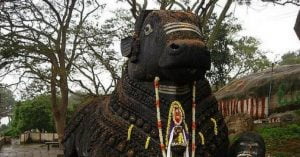In India, it has become increasingly obvious that many of our historical figures like great kings have had limited exposure.
Our education in history remains narrow and insufficient thus there is no pan-Indian realisation of the great leadership India once had.
Most of the knowledge remains regional.
Today in this article we are going to talk about one such great man “Kempe Gowda-I” also known as the founder of the modern-day city and capital of Karnataka Bengaluru.
Who was Kempagowda?
Kempe Gowda was a chieftain who ruled over most parts of Karnataka for the better part of the 16th century.
Kempe Gowda I was born in 1513 in a village near Yelahanka.
He studied for nine years in a Guru Kula near Aigondapura (present-day Hessaraghatta) where he learnt statecraft and martial skills.
Let’s talk about some interesting facts that one must know about this great figure.
A Great Town Planner.
Town planning is something most Indian cities lack these days.
Many cities have become unliveable just because of planning issues especially due to traffic (which Banglore is famous for).
This is not true for the Banglore city Kempe Gowda planned and constructed.
The planned city had eight access gates and wide roads and the settlement spread across present-day Avenue Road, Ulsoor, Yelahanka, K R Market and Malleswaram.
He built a watchtower on a granite hillock which stands to this day in present-day Lalbaug.
Though it is the oldest among the four metropolises, it is scientifically planned and remained a haven for living with abundant water bodies,

The plan of the old fortified city of Bengaluru. Credits:- Military Wiki fandom.com
Kempe Gowda was an Avid Temple builder.
Like all South Indian kings and chiefs, he too built a lot of temples and cultural structures.
He is credited with building the Basavanagudi Bull temple.
He also built various other temples like Ulsoor Someshwara temple and Gavi Gangadhareshwara temple.
The beauty about all these structures is that they were built with such robustness and attention to detail that all these temples have withstood the ravages of time, standing strong to this date.

Basavanagudi Bull Temple
Credits:- Metro Saga
Kempe Gowda served prison time during his rule.
Kempe Gowda won the approval of the Vijayanagara kings who bestowed on him the villages of Ulsoor, Begur Hobli, Varthur, Jigni, Kengeri and Kumbalgod among others.
But along with expanding the empire’s territory he also struck coins known as Pagodas.
The motive behind minting the coins is unknown.
But this act enraged the kings of Vijayanagara, and for this, he was imprisoned for five years.
On being released, he was awarded back his territories.
After his release from prison, Kempe Gowda built the steps leading to the Shivasamudra temple as a mark of gratitude.
Kempe Gowda and his unique way of choosing the border of the city.
According to urban legend, Kempe Gowda ran four bullock carts in four directions and where they stopped, marked the boundary of the City.
It is said that the starting point was the centre of Chickpete
Strangely, when all the four points were connected it made a perfect circle.
Kempegowda’s son identified the four points and built four towers that still stand today.
The interesting history behind the name of Bengaluru.
According to historians the name of the city wasn’t Bangalore or Bengaluru then.
It was ‘Bendakaalooru’ meaning ‘baked beans’ transformed into a Garden City with the current name.
But many remained quizzed why baked beans, one of the explanations provided is in a ballad that dates back to the youth of Kempe Gowda.
The ballad depicts Magadi Kempe Gowda as a man from a poor agricultural family.
Once he was working for a Brahmin he fell asleep under a tree.
The Brahmin came looking for him and saw him asleep under a banana tree.
But as he approached the tree the shadow receded to form a Mighty serpent known in local folklore as Lord Magadi Rangadhama.
This serpent was protecting him.
Seeing this the brahmin was shocked.
He threw the stale ragi balls that he had gotten for the boy into a well, woke him up and served him a scrumptious meal and sent him off saying he was destined to be a king and in the royal court.
The young Kempe Gowda left and kept on walking towards an unknown destination.
He was tired and hungry, then he saw a house with an old woman and said ‘Dear Ajji, give me a mouthful of rice” to which she replied ‘I have neither rice nor rotti, I only have some boiled beans.”
After having a handful of boiled beans Kempe Gowda thought this place should become a famous and prosperous town.
When he then got an opportunity to make a town surrounding that house he named it ‘Bendakaalooru’.
The resemblance of Bengaluru with an international city.
Kempe Gowda was so adept at planning the city that many historians compare the city with the planning of the old London metropolis.
The main commonality between the two cities was the existence of separate trading zones for different commodities.
While the city of Bengaluru had The Akkipete, selling rice, the Balepete selling bangles, Ragipete selling millet, Aralepete selling cotton and so on.
The City of Old London had s Milk Street, Bread Street, Mason Avenue, Ironmonger Lane etc, just like the Bengaluru Pete area.
The much more astonishing fact is that there was no way the planners of the two destinations could have met
These are some facts about the great ruler that were found on the internet.
Therefore it is important for the government to teach students about the rich history of the seasoned leadership that Indians had thus leaving no need for such articles.
Credits:- Karnataka.com, Asianet Newsable, Scroll.in and Metro Saga.
Featured Image Credit:- Deccan Herald



















































































